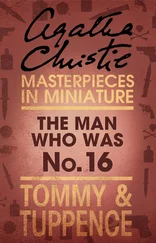Максим Горький - The Man Who Was Afraid
Здесь есть возможность читать онлайн «Максим Горький - The Man Who Was Afraid» — ознакомительный отрывок электронной книги совершенно бесплатно, а после прочтения отрывка купить полную версию. В некоторых случаях можно слушать аудио, скачать через торрент в формате fb2 и присутствует краткое содержание. Жанр: Русская классическая проза, Классическая проза, на английском языке. Описание произведения, (предисловие) а так же отзывы посетителей доступны на портале библиотеки ЛибКат.
- Название:The Man Who Was Afraid
- Автор:
- Жанр:
- Год:неизвестен
- ISBN:нет данных
- Рейтинг книги:5 / 5. Голосов: 1
-
Избранное:Добавить в избранное
- Отзывы:
-
Ваша оценка:
- 100
- 1
- 2
- 3
- 4
- 5
The Man Who Was Afraid: краткое содержание, описание и аннотация
Предлагаем к чтению аннотацию, описание, краткое содержание или предисловие (зависит от того, что написал сам автор книги «The Man Who Was Afraid»). Если вы не нашли необходимую информацию о книге — напишите в комментариях, мы постараемся отыскать её.
The Man Who Was Afraid — читать онлайн ознакомительный отрывок
Ниже представлен текст книги, разбитый по страницам. Система сохранения места последней прочитанной страницы, позволяет с удобством читать онлайн бесплатно книгу «The Man Who Was Afraid», без необходимости каждый раз заново искать на чём Вы остановились. Поставьте закладку, и сможете в любой момент перейти на страницу, на которой закончили чтение.
Интервал:
Закладка:
“I’ll not survive this.”
Her lips were gray and cold, and when he touched them with his own he understood that death was already within her.
“Oh, Lord!” he uttered, in an alarmed whisper, feeling that fright was choking his throat and suppressing his breath.
“Natasha? What will become of him? He must be nursed! What is the matter with you?”
He almost began to cry at his wife. The midwife was bustling about him; shaking the crying child in the air. She spoke to him reassuringly, but he heard nothing – he could not turn his eyes away from the frightful face of his wife. Her lips were moving, and he heard words spoken in a low voice, but could not understand them. Sitting on the edge of the bed, he spoke in a dull and timid voice: “Just think of it! He cannot do without you; he’s an infant! Gather strength! Drive this thought away from you! Drive it away.”
He talked, yet he understood he was speaking useless words. Tears welled up within him, and in his breast there came a feeling heavy as stone and cold as ice.
“Forgive me. Goodbye! Take care. Look out. Don’t drink,” whispered Natalya, soundlessly.
The priest came, and, covering her face with something, and sighing, began to read gentle, beseeching words:
“Oh God, Almighty Lord, who cureth every disease, cure also Thy servant Natalya, who has just given birth to a child; and restore her from the bed on which she now lies, for in the words of David, ‘We indulge in lawlessness and are wicked in Thine eyes.”’
The old man’s voice was interrupted now and then, his thin face was stern and from his clothes came the odour of rock-rose.
“Guard the infant born of her, guard him from all possible temptation, from all possible cruelty, from all possible storms, from evil spirits, night and day.”
Ignat listened to the prayer, and wept silently. His big, hot tears fell on the bare hand of his wife. But the hand, evidently, did not feel that the tears were dropping upon it: it remained motionless, and the skin did not tremble from the fall of the tears. After the prayer Natalya became unconscious and a day later she died, without saying another word – she died just as quietly as she had lived. Having arranged a pompous funeral, Ignat christened his son, named him Foma, and unwillingly gave his boy into the family of the godfather, his old friend Mayakin, whose wife, too, had given birth to a child not long before. The death of his wife had sown many gray hairs in Ignat’s dark beard, but in the stern glitter of his eyes appeared a new expression, gentle, clear and mild.
CHAPTER II
MAYAKIN lived in an enormous two-story house near a big palisade, where sturdy, old spreading linden trees were growing magnificently. The rank branches covered the windows with a dense, dark embroidery, and the sun in broken rays peeped into the small rooms, which were closely crowded with miscellaneous furniture and big trunks, wherefore a stern and melancholy semi-darkness always reigned there supreme. The family was devout – the odour of wax, of rock-rose and of image-lamp oil filled the house, and penitent sighs and prayers soared about in the air. Religious ceremonials were performed infallibly, with pleasure, absorbing all the free power of the souls of the dwellers of the house. Feminine figures almost noiselessly moved about the rooms in the half-dark, stifling, heavy atmosphere. They were dressed in black, wore soft slippers on their feet, and always had a penitent look on their faces.
The family of Yakov Tarazovich Mayakin consisted of himself, his wife, a daughter and five kinswomen, the youngest of whom was thirty-four years old. These were alike devout and impersonal, and subordinate to Antonina Ivanovna, the mistress of the house. She was a tall, thin woman, with a dark face and with stern gray eyes, which had an imperious and intelligent expression. Mayakin also had a son Taras, but his name was never mentioned in the house; acquaintances knew that since the nineteen-year-old Taras had gone to study in Moscow – he married there three years later, against his father’s will – Yakov disowned him. Taras disappeared without leaving any trace. It was rumoured that he had been sent to Siberia for something.
Yakov Mayakin was very queerly built. Short, thin, lively, with a little red beard, sly greenish eyes, he looked as though he said to each and every one:
“Never mind, sir, don’t be uneasy. Even though I know you for what you are, if you don’t annoy me I will not give you away.”
His beard resembled an egg in shape and was monstrously big. His high forehead, covered with wrinkles, joined his bald crown, and it seemed as though he really had two faces – one an open, penetrating and intellectual face, with a long gristle nose, and above this face another one, eyeless and mouthless, covered with wrinkles, behind which Mayakin seemed to hide his eyes and his lips until a certain time; and when that time had arrived, he would look at the world with different eyes and smile a different smile.
He was the owner of a rope-yard and kept a store in town near the harbour. In this store, filled up to the ceiling with rope, twine, hemp and tow, he had a small room with a creaking glass door. In this room stood a big, old, dilapidated table, and near it a deep armchair, covered with oilcloth, in which Mayakin sat all day long, sipping tea and always reading the same “Moskovskiya Vedomosty,” to which he subscribed, year in and year out, all his life. Among merchants he enjoyed the respect and reputation of a “brainy” man, and he was very fond of boasting of the antiquity of his race, saying in a hoarse voice:
“We, the Mayakins, were merchants during the reign of ‘Mother’ Catherine, consequently I am a pure-blooded man.”
In this family Ignat Gordyeeff’s son lived for six years. By the time he was seven years old Foma was a big-headed, broad-shouldered boy, seemingly older that his years, both in his size and in the serious look of his dark, almond-shaped eyes. Quiet, silent and persistent in his childish desires, he spent all his days over his playthings, with Mayakin’s daughter, Luba, quietly looked after by one of the kinswomen, a stout, pock-marked old maid, who was, for some reason or other, nicknamed “Buzya.” She was a dull, somewhat timid creature; and even to the children she spoke in a low voice, in words of monosyllables. Having devoted her time to learning prayers, she had no stories to tell Foma.
Foma was on friendly terms with the little girl, but when she angered or teased him he turned pale, his nostrils became distended, his eyes stared comically and he beat her audaciously. She cried, ran to her mother and complained to her, but Antonina loved Foma and she paid but little attention to her daughter’s complaints, which strengthened the friendship between the children still more. Foma’s day was long and uniform. Getting out of bed and washing himself, he used to place himself before the image, and under the whispering of the pock-marked Buzya he recited long prayers. Then they drank tea and ate many biscuits, cakes and pies. After tea – during the summer – the children went to the big palisade, which ran down to a ravine, whose bottom always looked dark and damp, filling them with terror. The children were not allowed to go even to the edge of the ravine, and this inspired in them a fear of it. In winter, from tea time to dinner, they played in the house when it was very cold outside, or went out in the yard to slide down the big ice hill.
They had dinner at noon, “in Russian style,” as Mayakin said. At first a big bowl of fat, sour cabbage soup was served with rye biscuits in, but without meat, then the same soup was eaten with meat cut into small pieces; then they ate roast meat – pork, goose, veal or rennet, with gruel – then again a bowl of soup with vermicelli, and all this was usually followed by dessert. They drank kvass made of red bilberries, juniper-berries, or of bread – Antonina Ivanovna always carried a stock of different kinds of kvass. They ate in silence, only now and then uttering a sigh of fatigue; the children each ate out of a separate bowl, the adults eating out of one bowl. Stupefied by such a dinner, they went to sleep; and for two or three hours Mayakin’s house was filled with snoring and with drowsy sighs.
Читать дальшеИнтервал:
Закладка:
Похожие книги на «The Man Who Was Afraid»
Представляем Вашему вниманию похожие книги на «The Man Who Was Afraid» списком для выбора. Мы отобрали схожую по названию и смыслу литературу в надежде предоставить читателям больше вариантов отыскать новые, интересные, ещё непрочитанные произведения.
Обсуждение, отзывы о книге «The Man Who Was Afraid» и просто собственные мнения читателей. Оставьте ваши комментарии, напишите, что Вы думаете о произведении, его смысле или главных героях. Укажите что конкретно понравилось, а что нет, и почему Вы так считаете.












